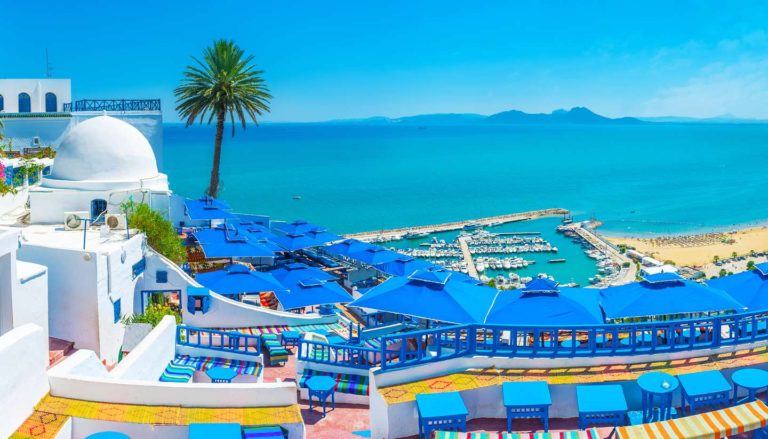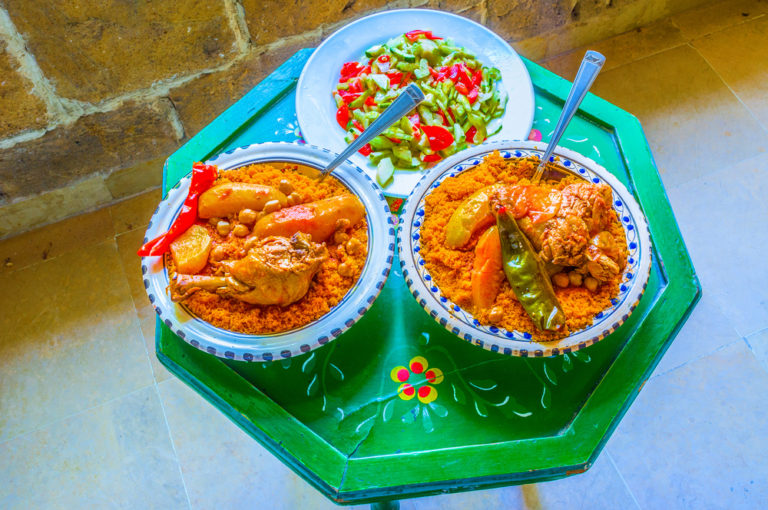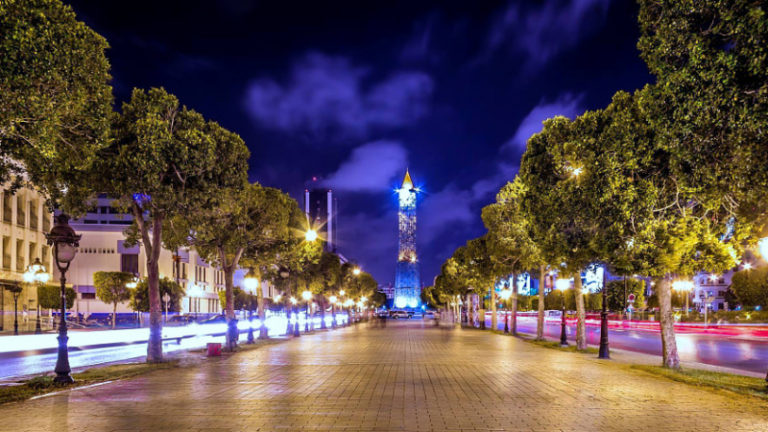Tunisia offers sunkissed beaches and awe-striking hiking options in the mountains.
Tunisia is famous for its wide array of historical attractions, its golden beaches, sunny weather and affordable luxuries. It may include the stretches of Mediterranean coastline or the selection of well-preserved Roman ruins, the ability to ride camels into the Sahara Desert, delicious olives and date plantations or go hiking in the mountains. There’s much to enjoy about this exciting North African destination.
Let’s know the details about this country from H.E. Mr. Nejmeddine Lakhal, Ambassador of Tunisia to India.
Tell us about the things to explore and do in Tunisia?
Tunisia is a North African country with thousands of years of history and many influential civilizations. Strategically located in the heart of the Mediterranean, with a population of over 11 million, and blessed with a prodigious landscape, Tunisia has a lot to offer to its visitors and Indians in particular. Tunisia is visa free for Indian tourists since 2017:
Universal heritage: Ancient Carthage, founded by the Phoenicians in 814 BC, modern Tunisia has always been a bright bridge between Africa, the East and the West. Several historical sites are UNESCO World Heritage sites: Carthage, Dougga, El Djem and Kerkouane and the medinas of Tunis, Kairouan and Sousse.
The beaches: With over 1300 kilometers of beautiful coast from Tabarka in the north to Djerba in the south, Tunisia is a land of marvelous beaches with golden sand. Many hotels have their own private beaches, in addition, to unoccupied coastlines where you can enjoy a great moment of tranquility and relaxation.
The Sahara: Heading south, you can enjoy a night in the heart of the Tunisian desert, and not miss the sunset and special oasis scenes, in a unique image that makes you feel the true sense of nature.
Eco tourism culture: For lovers of wild life and pure and fresh air. For example In Tabarka, Ain Draham or Zaghouan you can live the real countryside life, interact with local people, share their daily life activities and spend a night in an eco-friendly farm house.
Wellbeing: Land of thalassotherapy, where you can enjoy a wide range of treatments. And if you prefer thermal springs, there are natural treatment centres in the North West region, and in the Island of Djerba.
Golf: Large golf courses with contrasting landscapes, from the forests of Tabarka to the palm grove in Tozeur, with well-equipped clubhouses. Most of them are part of tourist resorts with a range of accommodation options and other leisure activities.


Tunis Food is unique and delicious in its own way. Share some details on this.
An outcome of influential civilizations and rich cultures, Tunisia’s unique gastronomy is miscellaneous, with delicious tastes incorporating Berber, Phoenician, Roman, Ottoman, Arab and French cuisine: from the famous Couscous, to Turkish sweets and Italian pasta, all made in a Tunisian way. Tunisian food is spicy, sometimes beating the Indian record. Vegetable, seafood, olive oil, fresh tomatoes and Harissa, a hot chili paste, are essential to Tunisian cuisine, and in particular for the making of King Couscous, and the delicious Brik.
Which is your favorite destination in Tunisia and why?
It is really difficult to make a choice. Tunisia is my favorite destination, and Kelebia, an ancient Phoenician city on the coast founded over 2500 years ago, is my favorite town, where my late parent’s house is located. Honestly, if you are in Tunisia, all roads leads you to a great destination and countless discoveries: Sousse, Bizert, Tabarka, Ain Draham, Douz, Tozeur, Sfax, Monastir, Hamammat, Nabeul, Karkouan, Gubeli, Gabes, and the Islands of Jerba and Kerkena.
Tell us about shopping and nightlife options in the country?
Local products, such as traditional clothing, blankets, hand-made gold, silver jewellery, and leather goods are available in all cities. Stores and shopping centres, and the Medina’s souks, in Tunis, Kairouan, Sousse and Sfax are great places to buy Tunisian crafts, souvenirs and local and imported clothing. Other special products include copper, olivewood sculptures, leather goods, clothing, perfume oils, pottery and ceramics from Nabeul, the famous Sidi Bou Said bird cages and carpets from Kairouan.
Night life in Tunisia is very active. Restaurants, with good food and nice shows, are open till late night, and there are many prestigious night clubs, and open-air discos that host famous international DJs, and local popular singers.

What festivals are celebrated in Tunisia?
During the summer, festivals and concerts are spread all over the country; most are focused on music, crafts, or other aspects of Tunisian culture. The Tunisian Medina Festival livens up the holy month of Ramadan in the Tunisian capital each year, while Carthage, Hammamet, Sousse, Sfax, Bizert, host their own international festivals of music, dance, and creative arts. If you are a symphony music fan, you must experience a night show at the Roman Coliseum of El Djem. But Tunisia Festivals are not restricted to summer. Indeed, In November and December of each year, Douze and Nafta host their International Festival of the Sahara, and the Electronic Dunes Festival. Music and dancing happens in the heart of the desert.
Any Bollywood movies were shot in the country. If yes, name a few?
Unfortunately, not yet. Tunisia offers a wide range of countless filming locations ideal for shooting Bollywood movies. Over 130 film productions have been shot in Tunisia over the years, including the famous movies of ‘Star War’, ‘the English Patient’, ‘Pirate’…. Great landscape, weather for every season, famous historical sites, beautiful beaches, golden desert, modern infrastructures, five-star hotels, competitive prices, and proximity to Africa, the Arab World and Europe… . I am very optimistic that we will see a Bollywood movie shot in Tunisia, that will open the door for more.

Does one get Indian food in Tunisia?
The openness of Tunisians to different cultures and civilizations has made Indian food well known in Tunisia. Besides sharing the spicy taste, Tunisian and Indian cuisines also share many ingredients. The two most famous restaurants that serve Indian food in Tunisia are Dum Pukht in Lac and Calcutta restaurants in the Golden Tulip Hotel, Carthage. There you can taste the best Indian dishes in a special atmosphere that makes you feel a piece of India in the heart of Tunisia.
How important are date and olive plantations for the country.
Tunisia is a land of olives, a country where the olive tree is a part of the nation’s culture, health, economy, gastronomy, tradition, in particular, thus, making Tunisia one of the world’s biggest producers of olive oil, and in particular extra virgin olive oil. There are about 1.8 million hectares of olive groves with 82 million olive trees, with a total harvest that reached the record of 350.000 tonnes in 2019. Dates, has also been growing in Tunisia since ancient times. ‘Deglet Nour’ (date of light) is the main type of dates, a very high quality that accounts for around 75% of the total production in Tunisia. And beside its delicious taste, dates contain a great ration of Vitamin B. The total production of dates was 335.000 tonnes in 2020. Tunisian dates are exported to more than 85 destinations around the globe, including India.

What do you like the most about India?
The Indians’ love for their motherland India. Rich or poor, Muslim, Hindu, Buddhist, or Christians they love their country deeply and unconditionally. That is what I admire the most in India and Indians. I also admire their intelligence, hardworking ways and patience, and value their friendship a lot.
What is the main language of Tunisia? Do people speak English?
Arabic language is the national language. French language is the second official language, and English language is being promoted at all levels of education. Of course Tunisian don’t speak English like Shakespeare used to, but enough to understand our guests.
One thing the tourists must do when they visit Tunisia and why?
To get to know Tunisia better you should interact with Tunisian people, with whom Indians share many values related to family, friendship, respect for human life, dignity, peace, openness, moderation…I think that people to people contact and interaction is more than fundamental for a strong and lasting friendship and partnership between nations. It’s the cornerstone of understanding among people and nations.

